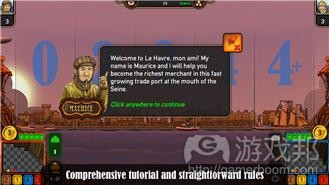如何有效避免突如其来的游戏危机
作者:Felix Dreyfus
2016年三月的一个周五,是我职业生涯中最糟糕的一天。那一天早上我醒来的时候看到邮箱里躺着150多封来自玩家的愤怒信,甚至每隔2分钟便会出现几条新信息,我的手机上还显示了无数未接来电。这一直击心脏的痛苦时刻(连同最糟糕的外部环境)持续了48个小时,但是在那之后我们的游戏却获得了更高的评级和更强大的社区支持,从长远角度来看甚至提高了游戏的销量。
不过为了更好地说明这一梦魇般的情况,让我们往前倒带一下:我是一支名为DIGIDICED的四人团队中的一员。我们在2015年9月创建了一家公司,希望将我们各自的产业经验集中在一起创造出一款高质量的跨平台多人桌面游戏。我们的第一个作品《勒阿弗尔:内陆港》在2015年11月面向iOS,Android和Windows Phone发行了。这款Uwe Rosenberg所设计的有关港口管理的桌面游戏拥有不错的表现,它甚至在爱2016年的Unity Developer Contest上获得了第3位的好成绩。
我们的第二款游戏《Patchwork》发行于2016年2月底。这是一款拥有更强易用性的游戏(游戏邦注:来自同一位游戏设计师),它将《俄罗斯方块》的铺设砖块机制与石头金币经济结合在一起。它的表现远远超出了我们的期待。我们收到了许多媒体正面的评价,并且它也在多个iOS市场中获得了全新热门游戏的推荐,我们也非常高兴看到来自Twitter以及评论中的正面反馈。
然后让我们再次回到那个可怕的时刻:为了阻止海盗,我们采取了一些方法让玩家能够识别到海盗并让他们去购买这一内容。这是一个无害的弹出窗口,并不会影响玩家玩游戏。我们希望将超过50%的“海盗”转变成付费用户。除此之外我们还在发送给媒体的APK中添加了一个计时器,一个月后它会呈现出一条信息,即“试用期”结束了,并会询问用户是否购买了一个副本。因为那时候我们面对着游戏即将发行的压力,所以我们便忘记删除那条致命的代码。而因为它的时间属性,这一问题一直潜伏在发行候选版本中。
于是在3月份的那一天,这颗潜伏在我们游戏中的定时炸弹终于爆炸了,并持续影响着我们在所有平台上的游戏,同时不断对付费玩家说着:“请购买《Patchwork》。你的试用期已经结束了。”连全新用户也会收到这样的信息。
暂时从惊恐中晃过神来后,我尝试着叫醒昨天处理破坏性控制到半夜的团队成员。我快速冲向了办公室去修复这一问题并开始挽回损害。在前往办公室的那段车程应该是我这辈子中最漫长的车程吧。
很快我便在标有ALL CAPS的标签下的代码中找到罪魁祸首—-那里有一行用深蓝色黑体标注的注释行:必须在发行前将其删掉。我删除了问题代码并创建了一个全新版本,我们也尽快将其上传到了所有平台上。但就好像命中注定那样,那天苹果的上传服务器出现了问题,尽管我们获得了加快审查的特许,但是刚好那天是周末,所以这便意味着该补丁需要花费48个小时才能出现在iOS上。所以我不得不将其递交给苹果的支持团队—-我一整个周末都在和他们通电话:他们也意识到了问题的紧急性并尽所能地去帮助我们更新内容。
那个周末,我们这个四人团队变成了全职的后勤人员。我们认真回复了每一封邮件和每条tweet(游戏邦注:在Reddit和Facebook上)。让我们惊讶的是,这一绝境被我们转变成了创建社区的绝佳机会。我们能够理解我们所收到的那些愤怒的信息。但是因为我们始终保持对于这些玩家友好以及诚实的态度,我们收到的第二波信息的内容完全超出了我们的预期。几乎所有用户都被我们的极快的回复速度吓到了,有些用户甚至对能够得到回复感到惊讶。除了个别情况外,那些突然出现的1星评级全部转变成了5星,甚至有许多用户承诺将会购买我们所创造的所有作品!
在解决了这个问题一周后,我们上传了另一个包含用户想看到的全新形象图片包的免费更新内容。那时候整个玩家社区几乎都能够理解我们的问题,游戏销量也有所回升,从游戏评级来看我们的整体分数甚至高于出现问题以前。所以即时,且诚实地回复每一位用户的消息变成了对于我们团队来说最有价值的问题解决方法。
(本文为游戏邦/gamerboom.com编译,拒绝任何不保留版权的转发,如需转载请联系:游戏邦)
Crisis Averted: How a Critical Bug Almost Wiped Patchwork’s Entire User Base
by Felix Dreyfus
I think it’s safe to say that the worst day of my professional career was a certain Friday in March 2016, when I woke up to more than 150 angry emails from our players in my mailbox — with new messages pouring in every two minutes, and a multitude of missed calls. This heart attack-inducing moment (combined with the worst external circumstances imaginable) led to 48 agonizing hours out of which we walked away with higher ratings, a stronger community — and in the long run, an unbelievable boost in sales.
But in order to put this nightmarish situation into context, I have to rewind a bit: I’m part of a four-man team called DIGIDICED. We founded the company in September 2015 with the goal of pooling our respective industry experience together in order to bring high quality, cross-platform multiplayer board game implementations to life. Our first product, Le Havre: The Inland Port, had been released on iOS, Android and Windows Phones in November 2015. This euro board game designed by Uwe Rosenberg about harbor management was performing well, considering the small nature of the IP — and we had just been informed that with it we had reached 3rd place in the Unity Developer Contest 2016.
Our second game, Patchwork, had been released at the end of February 2016. It’s a much more accessible game (from the same designer) that combines Tetris-shaped tile-laying mechanics with stone cold economics. It was performing much better than expected. We received a few high profile mentions in the press, had been featured as a hot new release on multiple iOS markets, and were very happy with the resonance we were getting on Twitter and in reviews.
Then came the aforementioned disaster: In an effort to curb piracy, we implemented a few methods to spot a pirate copy and kindly ask the user to buy it. It was a harmless pop-up that didn’t prevent you from playing the game. We were hoping to convert more than 50% of the “pirates” to paying customers. In addition, we added a timer in the APKs we sent out to the press. A month in, it would display a message that the “trial period” was over and ask the user to purchase a copy. Due to getting caught up in the stress surrounding the release, we neglected removed that fatal line of code. Due to its time-based nature, the fault remained undetected all the way into the release candidate.
So on that fateful day in March, the time bomb in our game had exploded in our face and proceeded to kick out all players from the app across all platforms while telling paying customers: “Please buy Patchwork. Your timed trial period is over” — fresh customers included. (We were getting around 200 sales a day during that period.)
After recovering from the initial panic attack — trying to wake up a team already dealing with damage control since midnight — I rushed to the office to fix this blunder ASAP and help “manage the damage.” Needless to say, this felt like the longest subway ride of my life.
The culprit was quickly found in the code just under an ALL CAPS tag — a bold and deep blue comment line: //TODO: REMOVE BEFORE RELEASE. I removed the faulty code and built a new version — and we uploaded it as fast as we could to all our platforms. As fate would have it, Apple had an issue with its upload server that day — and although we had been granted an expedited review (as if there was any better reason than ours), the server issue and the weekend effectively meant that it took 48 hours for the patch to arrive on iOS. I have to hand it to the support team at Apple, though — whom I spent most of that weekend harassing over the phone: They recognized the emergency and did everything in their power to help the update go live as soon as possible.
During that weekend, our little four-man team transformed into a full-time support crew. We replied to every single email and every single tweet — on Reddit and on Facebook. And this is where, to our surprise, we turned this quagmire into the single best community-building effort we had ever done up to that point. The messages we received were understandably outraged and a few outright insulting. But by remaining calm, friendly — and most importantly, honest — to our players, we received a second wave of messages that were completely outside of what we expected. Almost all our users were impressed by the speed of our response, and some were surprised to even receive a reply at all. With a few exceptions, all the 1-star ratings that came pouring in during that period had been changed to 5-star ratings — and many promises were made to buy all products ever developed by us ![]()
A week after this issue, we uploaded another free small update containing a pack of new profile pictures that users were wishing for (like cats!). By that time, the community was very understanding, our sales had risen a bit, and the upgraded ratings meant that our overall score was higher than before the crisis. Needless to say, replying to all user messages individually, honestly, and in a timely fashion has become a core value of our team ever since ![]() (source:Gamasutra)
(source:Gamasutra)








































 闽公网安备35020302001549号
闽公网安备35020302001549号